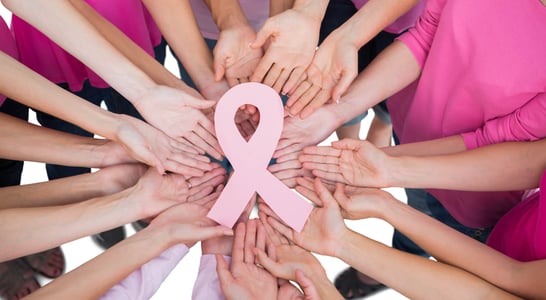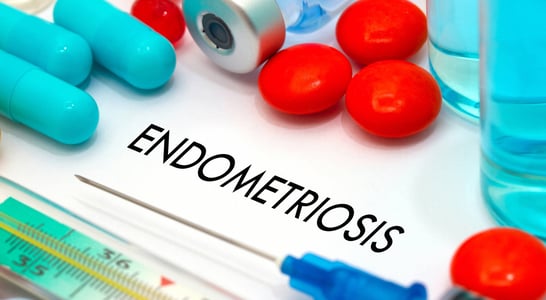
National Nurse’s Week
Give a big thank-you to the hard-working, often under-paid medical professionals who keep hospitals, rehab centers, nursing homes and hospice care running.
Many people owe their health to dedicated nurses working in hospitals and clinics across the world. We’d be in a sorry state if it weren’t for their hard work and dedication to the cause! Collectively, they’ve helped millions of people.
National Nurse’s Week is a chance for everyone to say a big “thank you” to nurses for their efforts. It is a chance to celebrate their contribution to society and how they have helped each of us lead a healthier life. Where would we be without their services?
How to Celebrate National Nurse’s Week
It’s time to put on your scrubs and start celebrating the work that nurses have done and continue to do to support our health. But what can you do to show some love?
The good news is that there is a tremendous amount the average person can do to appreciate the nurses in their community – everything from grand events to small gestures. Check out a few of these ideas:
Thank a Nurse
Is there a nurse who helped you in the past or one who is in your close circle? If so, then you might want to send them a hand-written note, offering your appreciation for the care they provided you. Traditional letters are impactful in an era dominated by electronic communication. They show that you took the time to think about them in your busy schedule.
Show Up in Small Ways
Another thing that you can do is bake cookies – especially if you’re a medic working in a clinical setting. Making delicious snacks is a great way to show the people around you that you care.
Nurses are usually low on time. The pressures of their work mean that they don’t always have opportunities to go out or experience the finer things in life. You can, however, find creative ways to help the nurse in your life, such as organizing babysitting or delivering meals.
Organize Workplace Events
Supervisors can also do their bit during National Nurse’s Week to show their appreciation. Gestures could include things like hosting public thank you ceremonies, offering work-related gifts, and giving them more time for themselves.
The best way to celebrate National Nurse’s Week, of course, is to incorporate care for nurses into every day of the year. Whenever we have a problem with our health, these are the people who pick up the pieces. Nothing is more important than that!
Learn About National Nurse’s Week
Nurses work hard throughout the year, serving patients in very challenging situations. Working as a medic is not an easy task. Nurse’s Day, therefore, is a chance for everyone to praise the heroic efforts of these essential healthcare workers. It’s an opportunity to offer gratitude to the nurses that looked after you and your family in your time of need.
Part of the work of National Nurse’s Week is to cultivate a sense of community appreciation for the work that these professionals do. But there’s also a practical side to the week. Many nurses must work in poor conditions and don’t have the equipment that they need to deliver quality care. One element of this event is to raise money to better fund medics providing services in parts of the world where resources may be lacking.
History of National Nurse’s Week
While many people consider National Nurse’s Week as a relatively recent phenomenon, its origins stretch back deep into history. The first inklings that there should be some sort of event to celebrate the work of nurses emerged in 1953.
Dorothy Sutherland, a senior government official, suggested to President Eisenhower that he institute a Nurse Day for the following year. The President didn’t act on the recommendation. Still, a celebration of nurses took place in 1954 to commemorate the anniversary of the nightingale hospitals used in the Crimean War.
Over the following two decades, political representatives lobbied the government to institute a nurse’s day (or week). In 1972, they presented President Nixon with a bill but, again, he failed to sign it.
After the political failures, the International Council of Nurses decided to take matters into its own hands. The organization proclaimed that there would indeed be an International Nurse’s Day starting in 1974. The political authorities responded and instituted National Nurse’s Week to coincide with the date.
National Nurse’s Week continued informally for several years. Still, it wasn’t until 1981 that official nursing organizations, such as the ANA, officially recognized it. A year later, Ronald Reagan signed a proclamation, signing a specific date into law.
Pressure mounted, however, for more formal recognition of National Nurse’s Week. The ANA, therefore, held a high-level discussion with its board of directors in 1990, where they developed the concept for a week-long celebration to be held the following year. Then, in 1993, the organization settled on making National Nurse’s Week a permanent feature of the calendar. Other related events soon followed, such as Student Nurse’s Week, and National School Nurse Day.
Holding an official National Nurse’s Week is important. This healthcare constituency is one of the most critical in the world. It contributes enormously to keeping us all healthy and happy. Nurses necessarily occupy the front line of health workers. Patients see every time they enter the clinical setting. They offer continuous support and help people push through their conditions and achieve a greater sense of wellbeing.
National Nurse’s Week celebrates nurses in the clinical setting for the way they interact with patients. They are often a literal lifeline for people in need, both physically and mentally.
National Nurse’s Week also recognizes the important work that nurses do in the academic setting. There are thousands of practitioners across the world who develop the science that will inform the next generation of care. Nurses, therefore, are building a better and brighter future too.
Nurses also involve themselves in medical research. They conduct studies and assist researchers in their efforts to develop treatments and cures. Thus, the reason we have medical breakthroughs has a lot to do with their efforts!
Nursing is currently a growing profession. The data suggest that the growth rate in nursing is about twice the rate of the average industry. People want to get involved in providing healthcare for others and improving their wellbeing. National Nurse’s Week is a recognition of that fact.
Also on ...
View all holidaysNational Tourism Day
Discover the beauty of our world! Take a trip, explore new places, and make unforgettable memories. Pack your bags and let's hit the road.
We think you may also like...
National Wear Red Day
Rocking vibrant red outfits to spotlight heart health sends a powerful message of awareness and support for a cause that truly matters.
World Cancer Day
Cancer is a powerful adversary, but the bravery and resilience of those who battle it are equally formidable and inspiring.
National School Counseling Week
Like superheroes, with tissues and good advice, school counselors help students conquer everything from bullies to bad grades.
Endometriosis Awareness Week
Affecting millions of women around the world, endometriosis is a debilitating condition that requires compassion and effective treatment.








